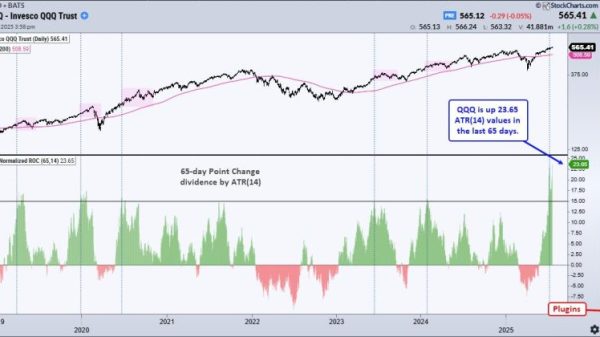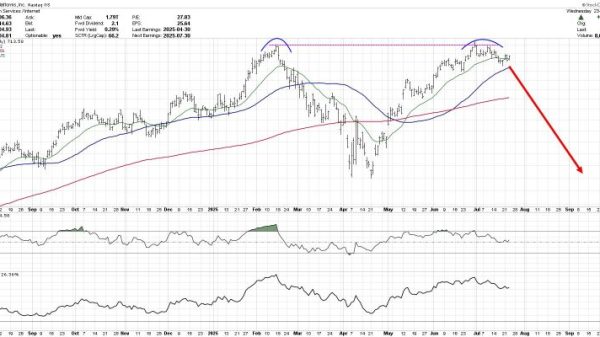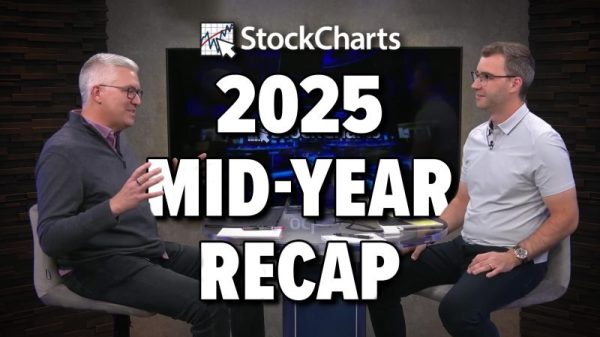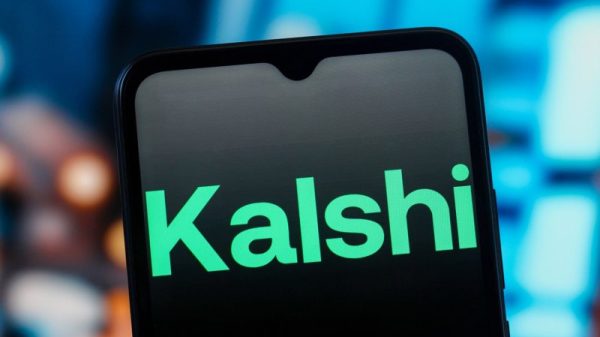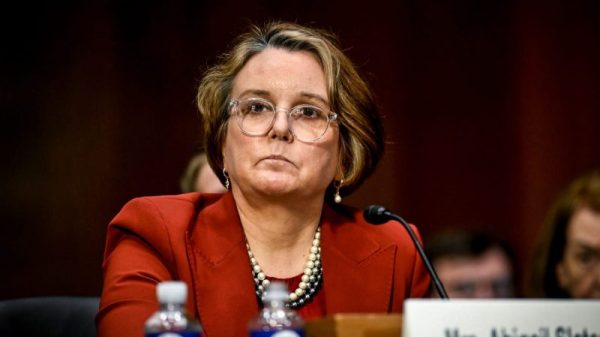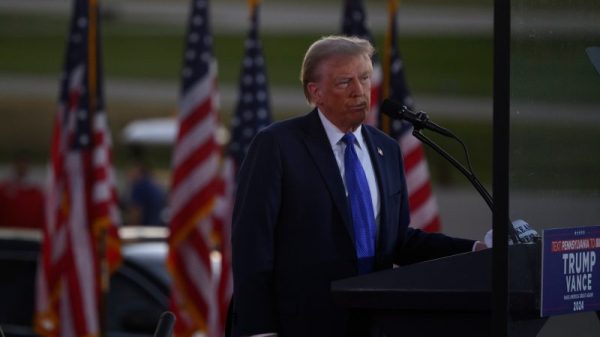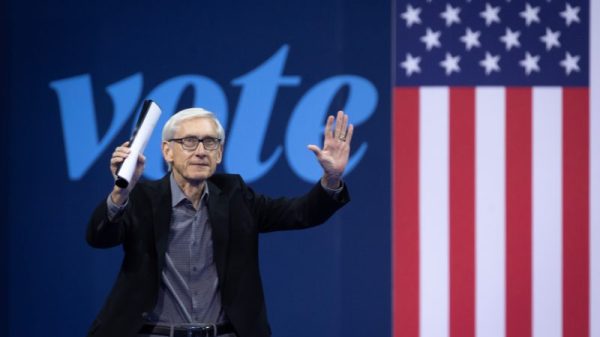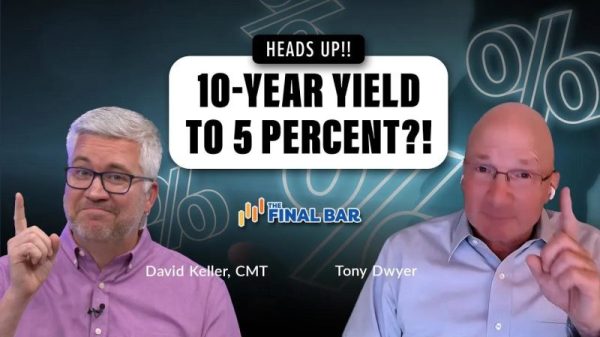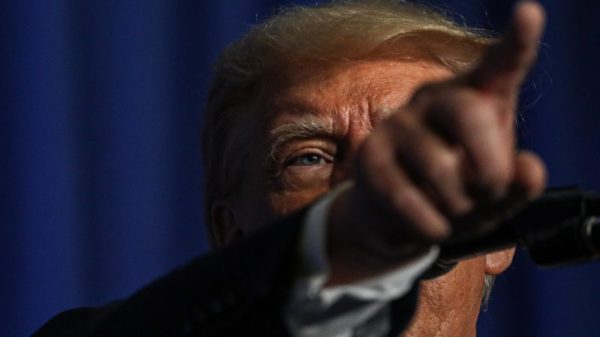Welcome to The Campaign Moment, your guide to the biggest developments in the 2024 not-quite-a-general election.
(Did a friend forward this to you? If so, sign up here.)
Today, that moment is the potential beginning of the end for Nikki Haley. Or perhaps the continuation of a drawn-out ending. Whatever you want to call it, this weekend is unlikely to be a happy one for her and is likely to reinforce that her path to victory in the GOP presidential nomination contest is somewhere between vanishing and non-existent.
South Carolina is holding its GOP primary, and Haley trails Donald Trump by an average of 30 points — including by 26 points in a Washington Post/Monmouth University poll last month. This, it bears emphasizing, is her home state.
Losing your home state is bad. Losing it by that much would be really bad. And losing it by that much after losing every other early state in the nominating race — and after losing 2-to-1 to “none of these candidates” in the Nevada primary — would be disastrous.
Yet Haley says she’ll soldier on. And she’s not just saying that off-hand because that’s what you have to say when annoying reporters ask you such questions; she gave a whole, defiant speech Tuesday.
“I’m not going anywhere,” Haley said. “I’m campaigning every day, until the last person votes …”
All of which gives us a prime opportunity to ask something we’ve been thinking about for a while: To the extent Haley actually means she’s in it for the long haul … why?
We have a few theories.
1. She’s waiting out a Spring Surprise
It’s a calculation that Trump’s would-be usurpers have surely been making for a long time: Be the last one standing in case Trump’s legal problems ultimately bring him down. The former president is going on trial in about a month, after all.
The problem is Trump’s issues have shown no sign of slowing him down in the GOP primary. Most primary voters have said he’d still be fit to serve as president even if convicted. And Trump has already weathered being found liable in civil court for sexual abuse and financial fraud.
There’s also the timeline problem. Trump’s New York hush-money trial is set to begin March 25, when most states will have already voted in their primaries and caucuses. And it’s likely to last until early May, when the vast majority of states will have voted. A New York Times/Siena College poll in December showed 62 percent of GOP primary voters said even a convicted Trump should still be the nominee if he got the most votes.
Trump’s legal problems could plausibly cost him victory in the general election; it’s a much bigger stretch in the primaries.
But Haley aimed her campaign at trying to get a two-person race, and maybe she just wants to see that race through.
2. She has no other immediate ambitions
Haley on Tuesday spoke like someone without much to lose or any political aims beyond this race:
She said she’s “pretty well settled” the question of whether she aims to be Trump’s running mate.“Other people say I’m trying to set up a future presidential run,’ she said. ‘How does that even work?”“I feel no need to kiss the ring, and I have no fear of Trump’s retribution,’ she added. “I’m not looking for anything from him. My own political future is of zero concern.”
It could be rhetoric, sure. But other former GOP contenders have more readily apparent political futures to mind. Fla. Gov Ron DeSantis is still pretty popular in the GOP and could run for president again. Sen. Tim Scott’s career is ongoing in South Carolina. They and others are more plausible Trump VP picks. (It seems likely that loyalty will be Trump’s top requirement.)
Haley has already been a two-term governor and a cabinet secretary. Maybe she has truly reasoned there is no impending campaign or administration job for her, and she’s just going to press on and see what happens.
3. Because she can afford it
Many candidates drop out because they don’t want to damage their brand. But plenty do so for a very simple and more practical reason: They can’t raise the money to keep going.
Haley has less concern on that front. And that’s because, while there isn’t much of an anti-Trump base in the GOP, the one that does exists is well-heeled. She’s also getting money from President Biden donors who want to see her keep pressing the case against Trump.
All told, her campaign actually raised more money than Trump’s did in January.
4. She truly worries about Trump
Haley is not about to turn into Liz Cheney, the former GOP congresswoman drummed out of office because she turned strongly against Trump over Jan. 6. But nor should we rule out that she truly worries about another Trump term and where he’s taking the party.
We’ve seen a chorus of other Republicans who actually served in Trump’s administration and saw his leadership up-close go on to raise red flags about him. Many of them, like Haley, are foreign-policy hawks who seem to have real convictions on such issues. For example, the former United Nations ambassador continues to make an impassioned case for standing by Ukraine even when that doesn’t appear to be terribly helpful to her primary campaign.
Maybe when Trump talks about things like encouraging Russia to attack countries who don’t pay enough for NATO, Haley thinks it’s worth trying to guide her party and country in a different direction — even in what is almost assuredly a losing effort.
South Carolina won’t be the only state to vote in the next few days. Michigan’s primary follows three days later, on Tuesday.
And there, the big story might wind up actually being the Democratic primary.
No, Biden isn’t in any apparent danger of losing; a December Post/Monmouth poll showed him leading by 70 points. But more so than virtually any other state, Michigan could give us a sense of how reluctant certain portions of the Democratic base might be to vote for Biden over his handling of the war in the Middle East — in ways that could matter in November.
Pro-Palestinian activists have set about getting Democratic voters to vote “uncommitted’ rather than for Biden, as The Post’s Yasmeen Abutaleb and Isaac Arnsdorf reported this week.
While a similar effort last month to get New Hampshire Democratic primary voters to write in “cease fire” fizzled — just more than 1 percent, or 1,500 voters did so — the campaign in Michigan is more robust. It even has the support of Rep. Rashida Tlaib (D-Mich.), a Palestinian American lawmaker. Michigan has one of the nation’s biggest Arab American and Muslim populations; around 300,000 people there claim Middle Eastern or North African ancestry.
A poll this week from Quinnipiac University showed Biden’s Democratic approval on the war in Gaza dropping below a majority (48 percent). Nearly as many (46 percent) disapproved.
As for what the results could actually tell us? Organizers have said they want 10,000 people to vote “uncommitted.” But that’s a very low target, given that about 20,000 people have voted “uncommitted” in other recent Democratic primaries. Biden also won Michigan in the 2020 general election by about 150,000 votes (2.8 percent). More realistically, several tens of thousands of people will probably need to vote “uncommitted” for the effort to truly break through.
And even if Michigan winds up being closer in 2024 than in 2020, the real question is whether these voters would pick Trump or stay home — versus just sending a message with a symbolic vote in a non-competitive primary.
“… When responding to the Alabama Supreme Court ruling, it is imperative that our candidates align with the public’s overwhelming support for IVF and fertility treatments.”
This is a quote from an extraordinary Senate Republican memo Friday pleading with their side to get its response to an Alabama Supreme Court ruling right.
The red state’s highest court this week ruled that frozen embryos are people and that those who destroy them can be held liable in wrongful-death lawsuits. The ruling puts in vitro fertilization in the state in jeopardy.
Rarely do you see such such outward concern from Republicans about the ways their newfound ability to restrict abortion rights in a post-Roe v. Wade world could go very wrong.
Multiple Republicans have struggled with their response to the ruling, including Haley and Sen. Tommy Tuberville (R-Ala.). Among those who hadn’t yet weighed in before the memo was sent: one Donald Trump. By Friday afternoon, though, he assured he strongly supported IVF and called for legislation to protect it.
“What might happen after another inauguration of Donald Trump” (Washington Post)“Trump and allies planning militarized mass deportations, detention camps” (Washington Post)“Biden faces major challenge on Gaza in next week’s Michigan primary” (Washington Post)“Biden targets Trump on IVF ruling, as GOP scrambles” (Politico)“Biden embraces bully pulpit as he escalates fight against Trump and GOP over Russia” (CNN)






